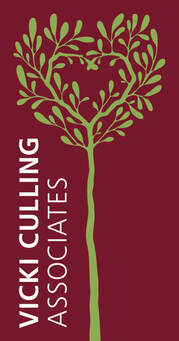the call for change
|
On November 8th 2023, Te Whatu Ora finally released the environmental scan it had commissioned Whakarongorau Aotearoa to complete. "The aim of the environmental scan is to identify what is currently working well, service and support gaps, the inequities that exist and who may be impacted. The findings of this report will inform the development of a national bereavement care pathway." Here are the key themes identified in the report:
|
On the same day, Te Whatu Ora also released the Maternity Consumer Surveys - one of which was the "Survey of and Qualitative Research with Whānau and Families Who Have Lost a Pēpē/Baby (Technical Report 2)" undertaken by Research NZ. This report is also expected to provide insights to inform the development of the National Perinatal Bereavement Pathway.
In this report, satisfaction with the overall standard of care and support received prior to, during and immediately after the loss of their pēpē/baby was lower than in 2014 (53% in 2022 compared to 74% in 2014). It was found that 14% of bereaved respondents had no contact or visits following the death of their pēpē/baby. With regard to counselling or mental health support - 74% were either not offered or did not receive this support. Further themes report what we sadly already know:
|
|
June 2021 STUFF NZ
Vicki Culling, a perinatal and infant loss educator, said the care and support for whānau when a baby dies was in a dire state. Support offered differed between DHB areas. “Our government has never acknowledged support for baby loss as an area that deserves attention," she said. "[It] has not set up the programmes and funding that is so needed for our thousands of parents, families and whānau who experience baby, infant and child loss each year." |
September 2019 STUFF NZ
Baby loss advocate Vicki Culling, who lost her daughter Aster in 1998, said parents were largely reliant on volunteers, so the quality of support depended on the strength of the local Sands group. She called for a funded national network, similar to Victim Support. |
|
September 2019 STUFF NZ
It's 21 years since Vicki Culling lost her baby girl Aster. For 17 of those years she has worked for better recognition for bereaved parents, through Sands, as a founding member of the committee investigating the deaths of babies and mothers, and through training health workers about baby loss. Most recently, she's been fighting for better information for those struggling to make sense of convoluted government requirements and entitlements, when the world no longer makes any sense at all. |
March 2021 TVNZ
Dr Vicki Culling is a perinatal & infant loss educator and has been actively involved in Sands for over 10 years. She told 1 NEWS while yesterday’s announcement was welcomed by the charity more still needs to be done. She says about 5,900 to 11,800 miscarriages or stillbirths occur each year and more than 95 per cent of the miscarriages occur in the first 12 to 14 weeks of pregnancy, according to data from the New Zealand College of Midwives. She is calling for a national bereavement pathway, saying support services for parents who have lost a baby are unacceptable. |
|
May 2020 Otago Daily Times
...Culling is especially keen for other communities, including Indian, Pacific peoples and Māori, to know about Sands. "We have a lot of Pakēhā middle-class women approach us, because a lot of us are that ... but we want to include everyone." She's also been involved in the Department of Internal Affairs' new online support service, Whetūrangitia, which put everything bereaved parents might need relating to legal and employment entitlements, funeral information and memory-making, into one website. But more needs to be done make sure support, such as counselling, was consistent across the country. Most district health boards say they provide counselling, but were actually referring people onto Sands, which survives almost entirely on donations and fundraising, Culling says. "Unfortunately we also have that same postcode lottery thing cancer treatment has. If you have a baby die in one part of the country you might get a lot more support than in other parts, and sometimes that's down to if there's a strong and active Sands group in that area." |
February 2021 - PMMRC/HQSC
Lisa Paraku, who stands on behalf of bereaved whānau and families as a member of the PMMRC, says we must do better. ‘We can no longer ignore the fact that, year after year, evidence-based recommendations of the PMMRC are not being prioritised and implemented.’ Around half of the recommendations made by the PMMRC over the past 13 years have yet to be implemented fully. Recommendations include investing in maternal and infant mental health and creating an appropriate and equitable national perinatal bereavement pathway. Other recommendations are organised by five target groups: health practitioners, district health boards (DHBs), colleges and regulatory bodies, government, and researchers. ‘It is important government departments, agencies and DHBs invest in developing and maintaining effective systems and processes so that health practitioners can implement these recommendations,’ says John Tait. ‘We can do this,’ says Lisa Paraku, ‘and we must, in honour of our precious babies and mothers who have gone before and in service to us all.’ |








